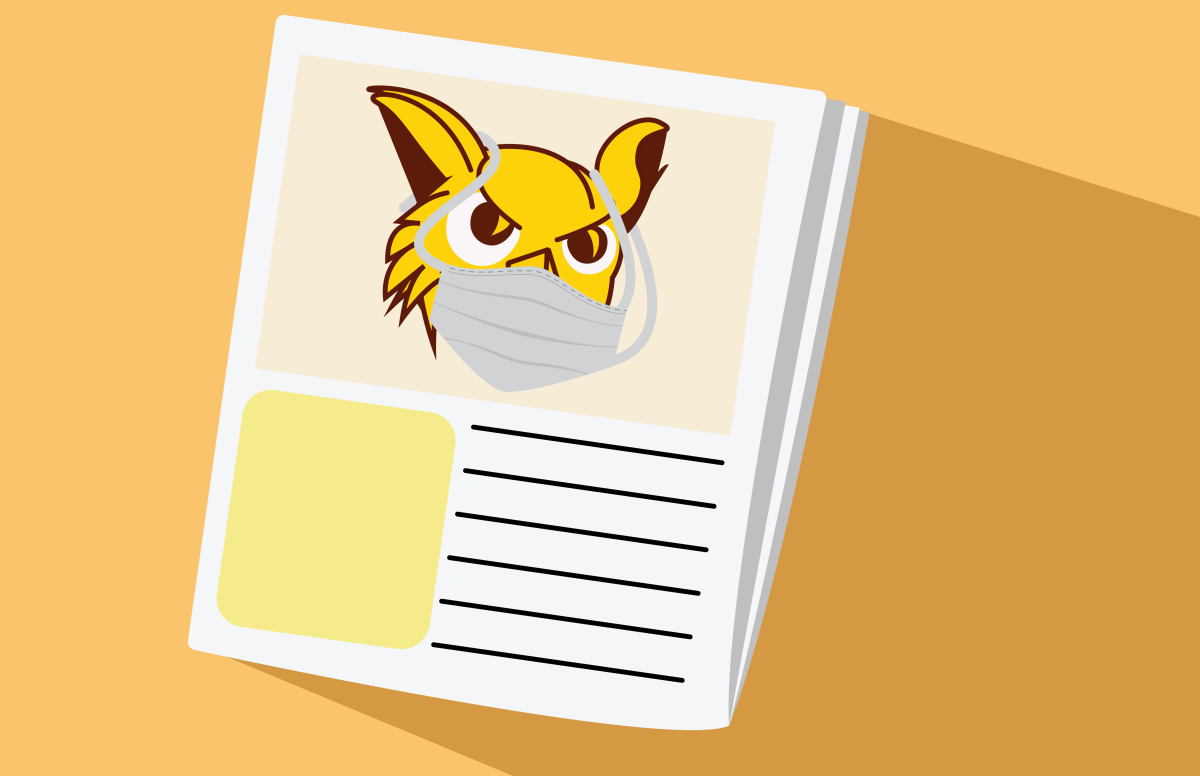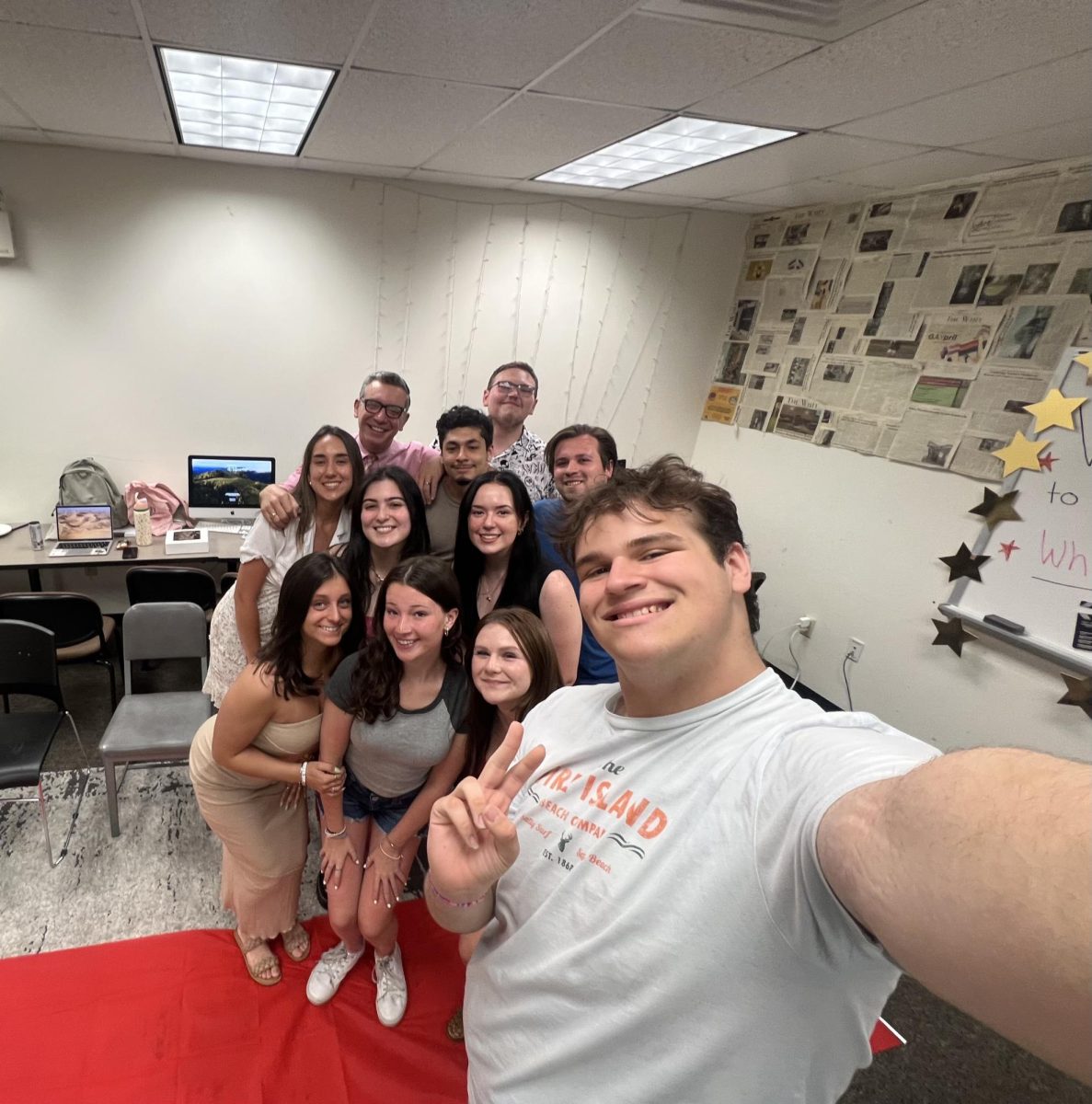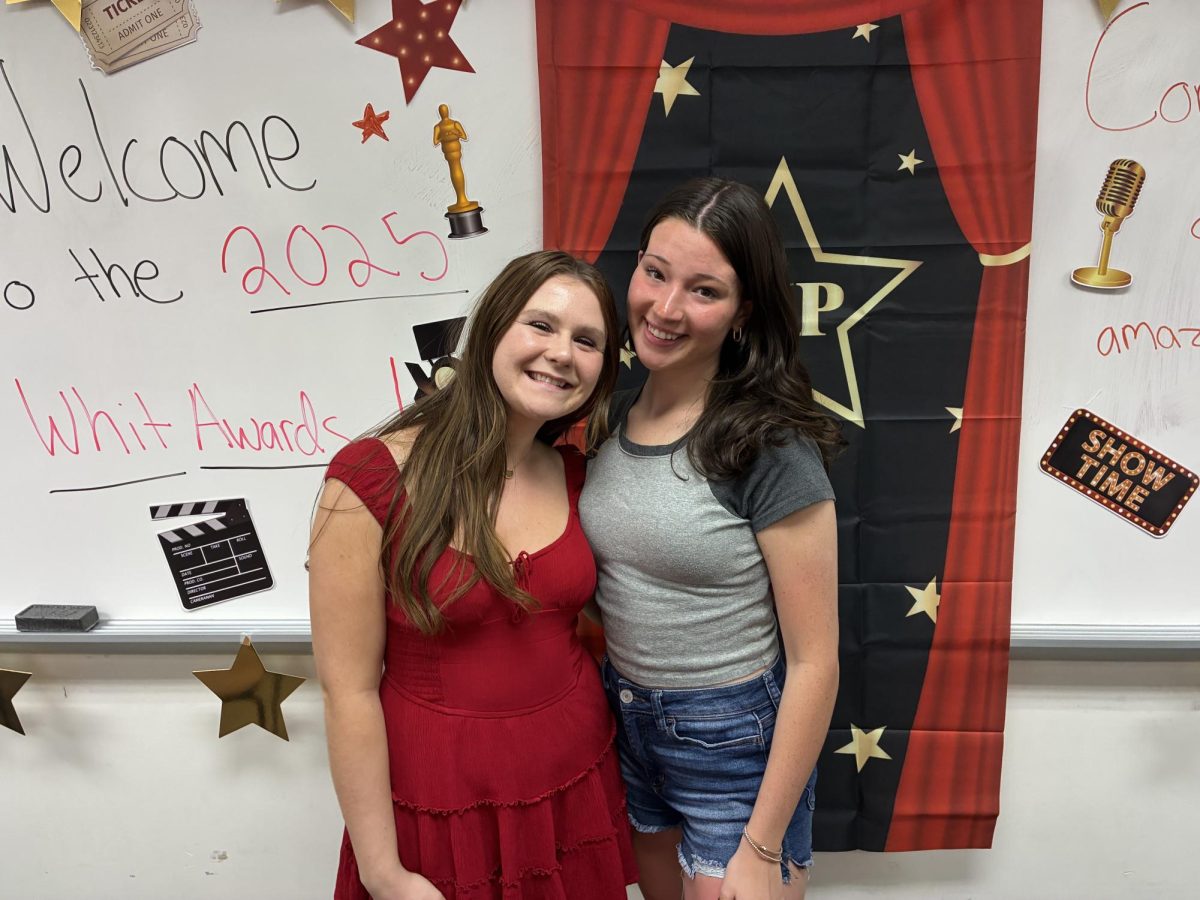When the COVID-19 pandemic hit nearly a year ago, everything came to a full and sudden stop, with the exception of essential services. As we learned more about the virus, businesses and other establishments opened up following the guidelines put forth by the CDC and the regulations enacted by local and state governments. We’re still nowhere close to the level of operation we saw before the pandemic went into full swing, but we are still working toward it.
One thing that hasn’t experienced a full closure of operation since the start of the pandemic is The Whit. Though our rate of publishing slowed down when the Rowan population was sent home for the semester following a two-week spring break, it never stopped. We reported some of the first positive cases within the community, we reported the university’s response to the pandemic and we reported the altruism of Rowan community members.
The Whit staff even reported throughout the summer, when we typically wouldn’t be able to report due to a changeover in staff and because of a lack of campus activity. However, since commencement was held in July and a protest supporting the Black community was hosted on Juneteenth, there were opportunities to report. So we did.
And we’ve continued to report during the school year as thoroughly as we would any other year, though we’ve encountered unique difficulties because of the pandemic.
Because of the pandemic, there are almost no in-person events. While we are still covering virtual events and meetings, we cannot fully flesh out our coverage. We can’t take photos of the events other than screenshots of WebEx or Zoom, or we can ask for the hosts to give us a photo to use. As the independent student newspaper on campus, we try to primarily use the talents of our staff — including our photographers — and virtual events don’t allow us to do this.
For our writers, it’s difficult to facilitate interviews with event coordinators and participants, as we don’t want to interrupt the event going on and there’s no way to conduct interviews without setting up a separate time to do so. That only works for interviews with organizers and other people officially affiliated with the event — students and other participants don’t have contact information available in conjunction with events, and we as student reporters don’t necessarily have the time to try and contact these participants.
Thus, the only feasible way to include participant perspectives of events they are largely unaffiliated with is to pull quotes from the event itself. The one benefit of virtual events is that we can see all the participants’ names, which leaves little room for error in spelling their names.
However, there’s a dilemma here that we face: is it O.K. to quote someone at a virtual event without their permission? The first instinct from our journalistic training is yes, as long as the event is open to all. Since public events and venues are typically free game as far as reporting goes, why should a public event online be any different?
The flipside of this is that participants may not see these events as public, especially since they’re likely in the relative privacy of their own homes. To see themselves quoted in an article, then, would likely throw them for a loop. After all, if they perceive an event as private, they probably would not want to be quoted, just like they wouldn’t want something they said in a private conversation to be published in the newspaper. We haven’t yet come across a solution that both satisfies our reporting instincts to quote and prevents catching students off-guard with being quoted, so suggestions are welcome.
In terms of sports specifically, The Whit has faced arguably even more obstacles. Since fall and winter sports were canceled, we couldn’t cover games like we normally would. Game coverage makes up the majority of our sports content during any other year, so we had to lean heavily into sports-related virtual events and columns during this past semester.
Luckily, spring sports will be happening at Rowan this year, so there are opportunities to cover games, as well as capture new multimedia content to accompany our articles. However, due to COVID-19, there are still restrictions for our sports coverage. After a typical game, we would normally have a reporter go down and interview the players and coaches about the gameplay, but general safety precautions outline that we must maintain at least a six-foot distance between us and the interviewees. Over such a distance, it’s difficult to hear someone, let alone get accurate quotes from them — and this doesn’t even acknowledge the ambient talking of players, coaches and spectators that may prevent a crystal-clear interview.
We could conduct interviews virtually to avoid this issue, but that would require removing interviewees from the direct aftermath of the game and affect the quality of quotes. This therefore is another obstacle we must overcome in our reporting efforts. We won’t disregard COVID guidelines to ensure the quality of our interviews, so there must be another way to make our game coverage as well-done as possible. We haven’t thought of it yet though, so again, suggestions are welcome.
The challenges we have faced and continue to face as journalists during a pandemic are not unique to news reporting in general. You can turn to any news channel on TV and see either journalists video calling from home, guests being interviewed via video call or journalists spaced six feet apart from each other on set.
We at The Whit do have the unique position of being students at the same time as being reporters, though. Not only do we have to balance coursework with our reporting obligations, we are still learning how to be journalists in the first place. This gives us an extra layer of challenge when we create content for The Whit that professional journalists don’t have; while they only have had to adapt to the new conditions, we’ve had to adapt while also honing our skills.
We believe that our dedication to news coverage during a pandemic, as students no less, will make us some of the best reporters once we graduate and are out in the career field. Juggling our obligations to school, The Whit, our social and family lives, jobs and other activities while adapting to the restrictions COVID-19 has imposed on us has forced us to make choices that will set a precedent for our careers.
The Whit could have taken a hiatus during the pandemic. The editors and writers living at home could have stepped back and said “No, there’s no way I can contribute to the paper in this situation.” But we didn’t because we value our roles as the campus’s source of information; to step down in a pandemic wouldn’t have sat right with us. We collectively decided to make the best of the situation at hand because that’s what journalists do. And that’s what we’ll continue to do when we become professionals.
For comments/questions about this story, tweet @TheWhitOnline.

























































































































































!["Working with [Dr. Lynch] is always a learning experience for me. She is a treasure,” said Thomas. - Staff Writer / Kacie Scibilia](https://thewhitonline.com/wp-content/uploads/2025/04/choir-1-1200x694.jpg)












































